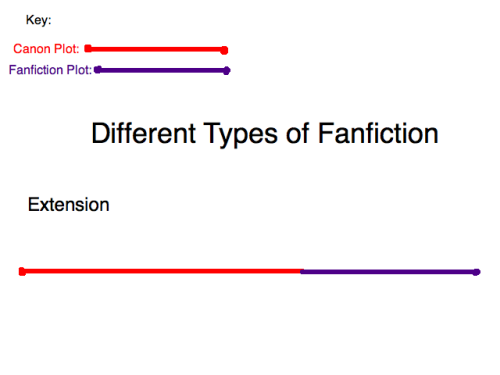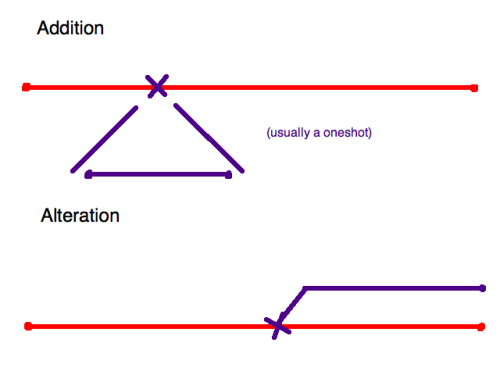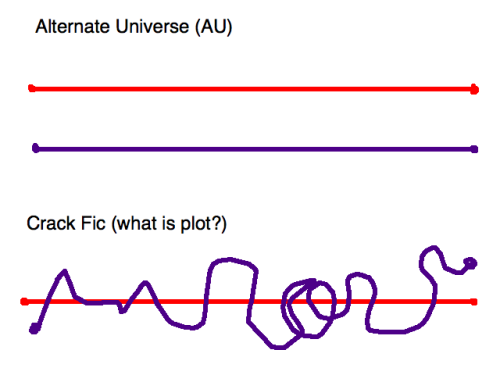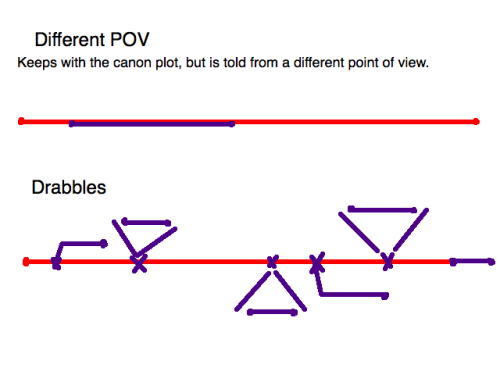And You Know What, We’re Just Not Gonna Talk About How Many Wips I’ve Started Lately. We’re Just
And you know what, we’re just not gonna talk about how many wips I’ve started lately. We’re just not gonna do it. And I’m definitely not coming up with world building for another one based on a tiktok.
More Posts from Allegedlyiwrite and Others
Write Believable Intelligent Characters
╰ Let their intelligence show in how they notice things
Smart people aren’t always the ones talking, they’re the ones observing the tiny detail that everyone else misses. They connect dots faster. They clock micro-expressions. They’re already ten moves ahead while everyone’s still arguing about step one.
╰ Don’t make them know everything
The smartest characters have gaps. A genius hacker who can’t do small talk. A professor who’s never seen Shrek. An expert in ancient languages who has zero street smarts. Give them blind spots, and suddenly they feel real—not robotic.
╰ Let their intelligence shape how they argue
A clever character doesn’t always win by yelling louder. Sometimes they cut deep with one sentence. Sometimes they bait someone into proving their point for them. Or smile while delivering verbal chess moves that leave everyone stunned two scenes later.
╰ Smart doesn’t mean wordy
Sometimes the smartest thing your character can say is nothing. Sometimes it’s “Huh.” Or one line that lands like a hammer. Intelligence isn’t just about complexity, it’s about clarity. Bonus points if they say the thing everyone else was dancing around.
╰ Show them solving problems, not just explaining them
Whether it’s picking a lock or defusing a political standoff, let them act. Watching them think on their feet, adapt, and surprise people is way more compelling than giving them long-winded monologues about the history of poison.
╰ Let them struggle with being misunderstood
A smart character might say something that’s totally logical but lands like a slap. Or they assume people see the obvious when they don’t. Intelligence can be isolating. That tension makes them human.
╰ Don’t make them the author’s mouthpiece
If your “smart” character exists to deliver the moral of the story, they’ll feel like a soapbox in a trench coat. Let them be flawed, biased, wrong sometimes. Let them learn. Otherwise, they stop being a character and start being an essay in disguise.
╰ Make their intelligence emotional, too
Book smart is one thing. Emotional intelligence hits differently. Maybe they’re intuitive. Maybe they know how to read a room. Maybe they see through someone’s bravado in five seconds flat. Brains plus empathy? Lethal combo.
╰ Smart doesn’t mean nice
Intelligence can be cruel. Calculated. Detached. Don’t be afraid to let your clever character weaponize their smarts if that’s who they are. Sometimes the coldest characters are the ones who know exactly how to hurt you—and choose not to. Or do.
Writer Jargon 101 ✨
Show, Don’t Tell – The golden rule! Instead of flatly stating emotions, reveal them through actions, dialogue, and sensory details. Like, don’t say, “She was angry.” Show her slamming a door or clenching her fists.
Head-hopping – When you switch POVs in the middle of a scene without clear demarcation. It's confusing and jarring, like taking a sudden detour while driving.
Purple Prose – Over-the-top, flowery writing that can come off as trying too hard. A little flair is fine, but don’t smother your reader with excess.
In Medias Res – Starting a story in the middle of the action. No boring build-up, just bang—we’re already in the heat of things.
Foreshadowing – Dropping subtle hints about what’s coming next. A small detail now could be a huge reveal later. It’s like dropping breadcrumbs leading your readers to an epic twist.
Chekhov’s Gun – If you introduce an object or detail, it better serve a purpose later. No random things just hanging around. Everything matters.
Canon vs. Fanon – Canon refers to the original source material, while Fanon is the fan-created version. You can take liberties with Fanon, but Canon needs to stick close to its roots.
Saturation Point – That place in your writing where things become too repetitive, too familiar. You’ve got to find a way to push beyond it to keep your writing fresh and engaging.
Bait and Switch – Leading your reader to expect one thing, then suddenly giving them something unexpected. It’s like pulling the rug out from under them.
Plot Device – Any element (object, event, or person) that drives the plot forward or allows the resolution of the story. It’s the item or moment that has to exist for the plot to make sense.
Vignette – A brief, evocative scene that focuses on one moment or idea, often without a formal plot. It's about capturing a snapshot of a bigger picture. Think of it like a small, poetic portrait within a larger narrative.
Mise-en-Scène – A French term used to describe the setting or visual elements within a scene, especially in film and theater. It refers to how everything is placed or designed to create a specific atmosphere.
Framing Device – A structure or technique used to tell a story within a story. It's like having a character tell their experiences through flashbacks or letters, giving the plot a layered, nested feel.
Endowment Effect – When writers unintentionally overvalue a character or plot point simply because they created it. It’s the I’m so proud of this, it’s got to stay! mindset. Sometimes less is more, so watch out for this.
Conflict (Internal/External) – Internal conflict is the emotional struggle within a character (e.g., wanting something but being afraid of it), while external conflict comes from forces outside of the character (e.g., fighting an enemy or dealing with societal pressures).
Pacing Breathers – Moments in the story where the action slows down to allow the characters to breathe and reflect. These help balance the high-energy scenes and give readers time to process.
Symbolism – Using objects, actions, or settings to represent larger ideas. Think of a wilting flower symbolizing the decay of a relationship. It’s subtle but adds layers to your story.
Subtext – The hidden or underlying meaning in a scene or dialogue. What isn’t said, what’s implied but not directly stated. Like that tension between two characters that’s so obvious but never spoken aloud.
Red Herrings – Misdirection! These are the details or clues that seem significant but lead readers down the wrong path. It’s like planting a fake trail to keep your reader guessing.
Narrative Whiplash – When you suddenly change tones or perspectives, jerking the reader’s expectations. It’s like riding a bike and then suddenly taking a sharp, unexpected turn. Used well, it adds suspense, but too much can feel disorienting.
To those readers who became writers ✍🏻, we instinctively and intuitively know what works and what doesn’t, but just in case I’m putting it out here so writing becomes easier. The more you write, the more these little tricks and tools become second nature. Keep going, trust yourself, and keep honing your craft. ✨
With me it’s always raising an eyebrow and/or nodding. Which results in my characters looking like smug bobble heads in every conversation
me while writing: ah yes, this character should do this, it feels so natural with what they're saying
me while editing: why the FUCK does he lean on the doorway SEVENTEEN TIMES IN THIS CHAPTER
You can and should write fanfiction that isn't perfect. You can and should write whatever fanfiction you want. You can and should write fanfiction that brings you joy even if it's silly or goofy or weird.
Except for me. My fanfic has to be perfect and read like a novel and ruin at least one person's sleep schedule.




I don’t know if anyone has ever done this before but, here ya go… The Different Types of Fanfiction!
I probably left a few out, but these are the most common, compared to their base fiction’s canon plot. Enjoy! XD
The worst is when you want to write, know what to work on, have time to write, and are too depressed to move. That’s the hell I’m burning in.
I hate that people are using ai to write. If you don’t wanna write, then don’t. Like it’s not even just a money thing because there are ai generated fanfics now. I hate it so much.
I live this craft with my whole heart, even when it’s hard. I value my words and the work of every other writer out there. I don’t understand why people think using ai is okay. You’re stealing other people’s work and devaluing the craft. Plus, it’s bad for the environment to use ai.
it may take me a month to put out a chapter but at least im not using ai to write it.
it may take me a month to put out a chapter but at least im not using ai to write it.
it may take me a month to put out a chapter but at least im not using ai to write it.
it may take me a month to put out a chapter but at least im not using ai to write it.
it may take me a month to put out a chapter but at least im not using ai to write it.
IT MAY TAKE ME A MONTH TO PUT OUT A CHAPTER BUT AT LEAST IM NOT USING AI TO WRITE IT
Every writer has that one story that they don't even intend to write down anymore, but that is forever stuck in their brain.
Trying to write decent erotica is crazy, like my notes for editing better not fall into the wrong hands. And it’s funny because when people see me handwriting notes while looking my laptop they always think I’m studying. I need to go back to sci fi.
born to infodump forced to constantly worry if the other person actually cares or if im making sense or if i said something wrong or if im embarrassing myself or if they want me to stop talking or
-
 needgoodgraphics liked this · 1 month ago
needgoodgraphics liked this · 1 month ago -
 marshily liked this · 1 month ago
marshily liked this · 1 month ago -
 allegedlyiwrite reblogged this · 1 month ago
allegedlyiwrite reblogged this · 1 month ago

21 he/they black audhdWriting advice and random thoughts I guess
232 posts